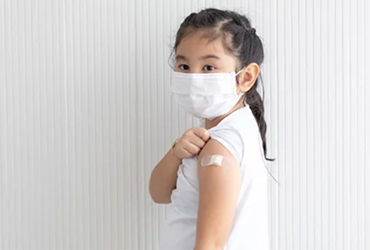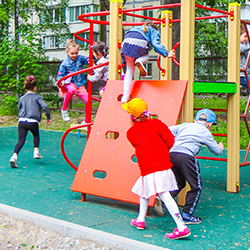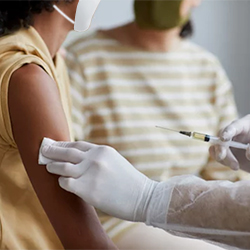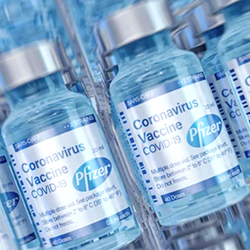By IDSE News Staff
Misinformation is responsible for low vaccination rates against COVID-19 among children 5 to 11 years of age, according to a recent study.
As of September 2022, approximately 78% of adults in the United States had completed the primary set of vaccinations against COVID-19, but only 31% of children ages 5 to 11 have done so (Vaccine 22 Sep 2022. doi:10.1016/j.vaccine.2022.09.046).

Researchers from the Annenberg Public Policy Center (APPC) of the University of Pennsylvania evaluated four waves of a national probability survey conducted with more than 1,600 adults in the United States. The waves covered April, June and September 2021, and January 2022. The last wave survey was conducted after the FDA issued its emergency use authorization for COVID-19 vaccines for children 5 to 11 years old in October 2021, and after the CDC recommended vaccinating the younger age group.
Survey participants were asked about their COVID-19 and vaccine knowledge, beliefs and behaviors. The researchers found full vaccination rates among the survey respondents spiked from 31% in April 2021 to 71% in September 2021, and then only increased slightly to 74% in January 2022.
A key question the research team sought to answer was why an adult vaccinated against COVID-19 express reluctance to have a 5- to 11-year-old do the same. The researchers found that in addition to general misconceptions about the safety of vaccines and vaccination, misinformation regarding the safety of the COVID-19 vaccine increased the reluctance of already vaccinated adults, including parents, to seek COVID-19 vaccination for their children.
COVID-19?specific misconceptions included claims of infertility, changes in the vaccine recipient’s DNA, frequent allergic reactions, perception of COVID-19 vaccines as riskier than the infection itself and their alleged cause of thousands of deaths—all of which have been reported to be false.
In January 2022, -only about 55% of all survey participants noted that they were “very likely” to recommend vaccinating a child ages 5 to 11 years. Among parents of a child younger than 18 years, the researchers recorded that only 44% were “very likely” to recommend vaccination for a child 5 to 11 years old. They found survey respondents who noted a greater belief in misinformation were less likely to recommend COVID-19 vaccination for a young child, and conversely found that as belief in vaccine misinformation decreased, the probability of recommending vaccination increased.
The researchers also found more hesitancy about child vaccination among Black and Hispanic survey respondents, evangelical Christians, Republicans, women, and parents of children younger than 18 years—consistent with previous studies of vaccination hesitancy.
“Concerns about vaccine safety are clearly a powerful predictor of reluctance to vaccinate oneself and children,” said researcher Kathleen Hall Jamieson, PhD, the director of the APPC at the University of Pennsylvania, in Philadelphia. “It is easy to understand why adults would be particularly concerned about adverse reactions, impacts on the DNA, the potential fertility of children, and the possibility that a vaccine might contain toxins or cause autism. Allaying these unwarranted concerns should be a public health priority.”
The research team noted that experience with the COVID-19 vaccines for children indicates the vaccines protect against hospitalization for more than 20 weeks and can reduce the risk for infection.




